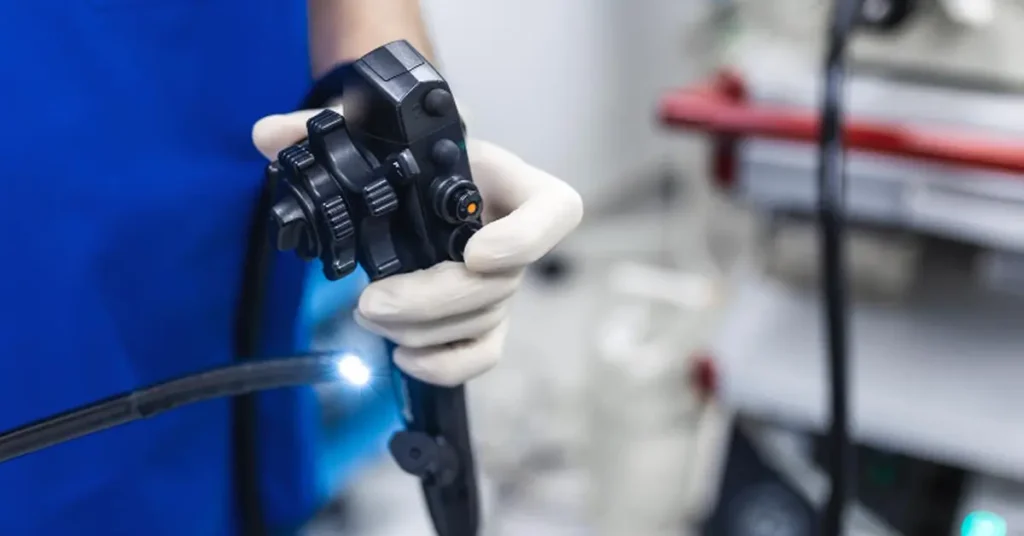A Colonoscopy is a vital medical procedure used to detect potential issues in the colon and rectum, such as colon cancer, polyps, inflammation, and other abnormalities. Despite its importance, many people hesitate to schedule their first colonoscopy due to uncertainty about when to get a colonoscopy, how to prepare for a colonoscopy, and what signs might indicate they need one.
This comprehensive guide answers the most common questions about colonoscopies so you can feel informed, prepared, and proactive about your gastrointestinal health.
How Long Is a Colonoscopy Procedure?
One of the most frequent questions patients ask is: “How long is a colonoscopy procedure?“
On average, a colonoscopy typically takes 20 to 60 minutes. The actual time can vary depending on factors such as:
- The quality of your colon prep
- Whether the doctor needs to remove polyps or perform biopsies
- The complexity of navigating your colon anatomy
While the procedure itself is relatively quick, you should plan for a total of 2 to 3 hours at the medical facility to account for preparation, recovery from sedation, and post-procedure monitoring.
When Should I Get a Colonoscopy?
Understanding when you should get a colonoscopy is crucial for preventive healthcare.
Most health guidelines recommend:
- First colonoscopy at age 45 if you have no risk factors.
- Earlier screenings (sometimes as early as age 40) if you have a family history of colon cancer, polyps, or inflammatory bowel disease (IBD).
- More frequent screenings if prior colonoscopies have found polyps or abnormal tissue.
Other factors that indicate it’s time for a colonoscopy:
- Persistent gastrointestinal symptoms
- Changes in bowel habits
- Rectal bleeding
- Unexplained abdominal pain or weight loss
Signs You Need a Colonoscopy
Recognizing the signs you need a colonoscopy can help detect serious conditions early. Common warning signs include:
- Blood in your stool
- Unexplained anemia (low red blood cell count)
- Chronic diarrhea or constipation
- Abdominal cramping or bloating
- Significant changes in bowel movements
- A personal or family history of colon polyps or colorectal cancer
- A positive result on a fecal immunochemical test (FIT)
If you experience any of these symptoms, consult a gastroenterologist promptly.
How Do You Prepare for a Colonoscopy?
Proper preparation is essential for a successful and accurate procedure. Here’s how to ensure your colon is thoroughly clean for your doctor’s review.
Colonoscopy Preparation Steps:
- Dietary Changes (2-3 days before):
Switch to a low-fiber diet and then to clear liquids the day before the procedure (broth, tea, sports drinks, clear juice, gelatin). - Bowel Preparation (1-2 days before):
Your doctor will prescribe a bowel prep solution to drink. This typically induces frequent bowel movements to cleanse your colon. - Medication Adjustments:
Discuss any medications you’re taking, especially blood thinners, iron supplements, or diabetes medications, as adjustments may be necessary. - Fasting (Day of Procedure):
Avoid all solid foods and liquids for several hours before the appointment, as instructed by your healthcare provider.
Proper preparation ensures a clear colon, allowing for a thorough and accurate examination.
How Do You Prep for it?
If you’re wondering specifically how do you prep for a colonoscopy, here’s a simplified checklist:
- Follow the clear liquid diet
- Complete the laxative preparation exactly as directed
- Stop eating solid foods 24 hours before the procedure
- Stay hydrated with approved liquids
- Arrange transportation, as sedation will prevent you from driving after
Skipping any step can result in an incomplete exam and the need to repeat the procedure.
Why It Matters for Preventive Health
Regular colonoscopies save lives by detecting colon cancer early, removing precancerous polyps, and addressing other serious digestive issues before they escalate. Delaying the procedure due to fear or inconvenience can increase health risks unnecessarily.
If you’re proactive about your colon health, you reduce your risk and improve outcomes through early detection and timely intervention.
Schedule Your Colonoscopy with GI Solutions
At GI Solutions, we specialize in providing compassionate, expert care for all your gastrointestinal needs, from diagnosis to treatment. Our team will guide you through the entire colonoscopy process from calculating the right timing for your first procedure to offering clear guidance on how to prepare for your colonoscopy.
Book a consultation today to discuss your gastrointestinal health
Visit GI Solutions to take the next step in protecting your health through early detection and expert care.


